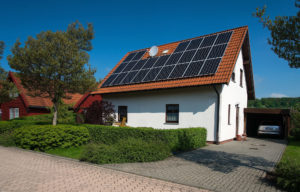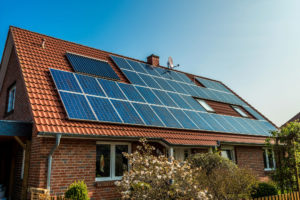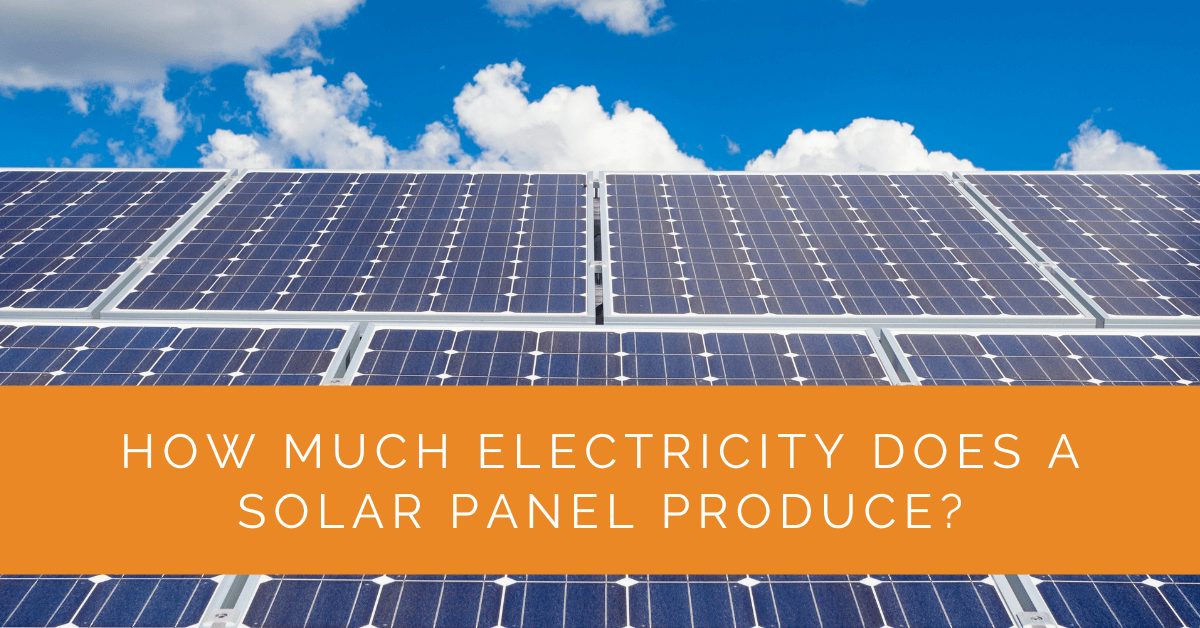Sustainability and renewable energy sources have become top priorities in today’s fast-changing world. As a result, solar panels have gained popularity as an environment-friendly means of generating electricity. These panels utilise the unlimited energy of the sun to produce clean and sustainable power. Whether you’re planning to install solar panels on your property, looking to understand their energy output in detail, or just curious about solar energy production, this comprehensive article will provide invaluable insights and practical information about how much electricity a solar panel produces.
Contents
- 1 Key Takeaways
- 2 Solar Panels and Their Energy Output
- 3 Calculating Solar Panel Production
- 4 Average Solar Panel Output
- 5 Maximising Solar Panel Production
- 6 Case Study: Optimising Solar Panel Energy Production for a Residential Property
- 7 Expert Insights From Our Solar Panel Installers About Solar Panel Electricity Production
- 8 Discover the Power of Solar with Solar Panels Network
- 9 Conclusion
Key Takeaways
- Solar panel production varies based on sunlight availability, efficiency, and orientation.
- You can estimate energy production using a simple formula: Energy (kWh) = Solar Panel Output (kW) x Hours of Sunlight.
- To maximise solar panel production, ensure proper maintenance, consider adding more panels if needed, and practice efficient energy consumption.
Solar Panels and Their Energy Output
Types of Solar Panels: Which Solar Panel Produce the Most?
Solar panels come in various types, each with unique features and efficiency levels. Understanding the differences among these types can help you make an informed decision when selecting the right panels for your needs.
Monocrystalline Solar Panels
Monocrystalline solar panels are renowned for their high energy efficiency. These panels are constructed from single crystal structures, allowing them to convert sunlight into electricity at a remarkably high rate. Monocrystalline panels are an excellent choice if you have limited roof space and wish to maximise energy production.
Polycrystalline Solar Panels
Polycrystalline solar panels offer a cost-effective option for residential installations. While they are slightly less efficient than monocrystalline panels, they balance performance and affordability, making them a popular choice among homeowners.
Thin-Film Solar Panels
Thin-film solar panels, while less efficient than their crystalline counterparts, possess unique advantages. They are lightweight, flexible, and less expensive to produce, making them suitable for specific applications where traditional panels may not be practical.
How Do Solar Panels Work to Generate Electricity?
To truly grasp how much electricity solar panels can produce, it’s essential to understand the underlying technology. Solar panels operate on a simple principle: converting sunlight into electricity through photovoltaic cells.
- Absorption of Sunlight: When sunlight strikes the surface of a solar panel, the panel’s photovoltaic cells absorb the energy contained in the photons of sunlight.
- Electron Release: The absorbed energy excites electrons within the semiconductor material of the photovoltaic cells. This excitement causes the electrons to become mobile, creating an electric current.
- Electricity Generation: The electric current generated by the movement of electrons can then be harnessed as electricity and used to power various electrical devices and systems.
The efficiency of this process depends on several factors, including the type of solar cell, the quality of the materials used, and the amount of sunlight received.

Calculating Solar Panel Production
Factors Affecting Solar Panel Output
To estimate the energy production of solar panels accurately, it is crucial to consider the numerous factors that can significantly influence their performance. These factors include:
Sunlight Availability
The geographical location of your solar panel installation plays a pivotal role in determining its energy production. Regions with abundant sunlight will naturally generate more electricity. However, local weather patterns, seasonal variations, and potential shading from nearby structures or trees can impact the availability of sunlight.
Panel Efficiency
The efficiency of your chosen solar panels is a key determinant of energy production. Higher efficiency panels can convert a larger percentage of sunlight into electricity. When selecting solar panels, superior efficiency ratings ensure optimal performance and energy generation.
Tilt and Orientation
The angle and orientation at which your solar panels are installed can significantly affect energy production. Panels that are correctly tilted to face the sun and oriented appropriately (towards the south in the northern hemisphere or north in the southern hemisphere) will capture more sunlight throughout the day. Proper alignment can lead to increased energy output.
How to Calculate How Much Electricity a Solar Panel Can Produce
Estimating the energy production of a solar panel system involves a straightforward formula:
Energy (kWh) = Solar Panel Output (kW) x Hours of Sunlight
For example, suppose you have a 5 kW solar panel system, and your location receives an average of 5 hours of sunlight daily. In that case, the daily energy production can be calculated as follows:
Energy (kWh) = 5 kW x 5 hours = 25 kWh
This calculation provides an estimate of your solar panel system’s daily output. It is essential to note that solar panels generate electricity only during daylight hours, and the actual output may vary based on weather conditions and shading.
Determining Your Energy Needs
Before installing solar panels, it is essential to determine your energy requirements accurately. Reviewing your electricity bills over several months will provide insights into your average monthly consumption. This information is invaluable as it allows you to size your solar panel system appropriately, ensuring it meets your energy needs.

Average Solar Panel Output
Understanding the typical output of a solar panel can help you set realistic expectations for energy generation. On average, a standard 1 kW solar panel system in a location with good sunlight exposure can produce between 3,000 to 4,000 kWh of electricity per year. However, this figure can vary significantly based on location, panel efficiency, and orientation.
In regions with abundant sunlight, you can expect higher annual energy production. Conversely, areas with less sunlight may see slightly lower output. Panel efficiency also plays a vital role, as more efficient panels will generate more electricity from the same amount of sunlight.
When estimating your system’s average output, it’s important to consider your location and the type of solar panels you plan to install. Consulting with a solar professional or using online solar calculators can give you a more accurate estimate based on your unique circumstances.
Maximising Solar Panel Production
How to Maximise Energy Output
To derive the maximum benefit from your solar panel system and optimise energy production, consider implementing the following strategies:
Proper Maintenance
Regular maintenance is essential to ensure your solar panels operate at peak efficiency. It is crucial to keep them clean and free from dirt, dust, and debris. Periodically inspect your panels for any shading issues from nearby structures or trees and take appropriate measures to mitigate them. Proper maintenance contributes to sustained and efficient energy generation.
Adding More Solar Panels
If your energy needs have increased over time, the flexibility of solar panel systems allows you to expand your installation by adding more panels. Consult with solar companies to determine the best approach for expanding your system while maintaining optimal performance.
Efficient Energy Consumption
Practice efficient energy consumption to maximise solar energy and minimise reliance on traditional grid electricity. When solar panels produce electricity, use energy-intensive appliances and devices during daylight hours. Additionally, consider installing energy-efficient appliances and lighting to reduce overall energy consumption, further maximising the benefits of your solar panel system.
Solar Panel Output Per Month
Understanding your solar panel system’s monthly energy output is pivotal for effective budgeting and energy management. Energy needs can fluctuate throughout the year, so having insights into how much energy your panels produce each month is invaluable.
Case Study: Optimising Solar Panel Energy Production for a Residential Property
Background
Solar Panels Network undertook a project to install a solar panel system for a homeowner in the UK. The client aimed to reduce their carbon footprint and lower electricity bills. The property, located in a suburban area with ample sunlight exposure, provided an ideal setting for solar energy generation.
Project Overview
The objective was to maximise the energy production of the solar panel system, taking into account the available roof space, orientation, and the homeowner’s energy needs. The project also focused on educating the homeowner about maintenance and efficient energy consumption practices.
Implementation
- Assessment and Planning: Conducted a site assessment to evaluate roof orientation, tilt, and shading. Recommended monocrystalline solar panels for their high efficiency and optimal performance in limited space.
- Installation: Installed a 5 kW solar panel system with proper mounting and wiring. Included an inverter to convert DC to AC power and a monitoring system for tracking performance.
- Education and Maintenance: Provided guidance on regular cleaning and inspection. Educated the homeowner on using high-energy appliances during peak sunlight hours and discussed potential future system expansions.
Results
- Energy Production: Achieved an estimated annual production of 5,000 kWh, covering approximately 70% of the household’s energy needs. Monthly output varied with seasonal changes.
- Cost Savings: Notable reduction in electricity bills, with an estimated payback period of 7-8 years. Additional savings through efficient energy practices.
- Environmental Impact: Significant reduction in the household’s carbon footprint, supporting the client’s sustainability goals.
Summary
This case study demonstrates the critical steps in optimising solar panel energy production, from careful selection and placement to regular maintenance and education on efficient energy use. The project delivered substantial cost savings and environmental benefits, showcasing the value of personalised solar solutions tailored to individual needs and site conditions. Solar Panels Network remains committed to providing expert, sustainable energy solutions that align with our clients’ goals for a greener future.
Expert Insights From Our Solar Panel Installers About Solar Panel Electricity Production
Understanding the factors that influence solar panel output, such as panel type, orientation, and local sunlight availability, is crucial for optimising energy production. It’s about tailoring the solution to each unique setting.
Senior Solar Installation Specialist
Maximising the efficiency of your solar panels involves not just proper installation but also regular maintenance and monitoring. Keeping panels clean and free from obstructions can significantly impact their performance.
Renewable Energy Consultant
Choosing the right type of solar panels, such as monocrystalline for limited space, can make a big difference in energy output. It’s essential to match the technology to your specific energy needs and site conditions.
Solar Energy Advisor
Discover the Power of Solar with Solar Panels Network
Are you navigating the world of solar installations? Look no further than Solar Panels Network, the UK’s trusted partner in harnessing the sun’s potential. Our dedication goes beyond just installations; we’re on a mission to transform how homeowners and businesses across the UK perceive and utilise energy. By choosing us, you’re reducing your carbon footprint and making a smart financial move that promises savings for years ahead. Contact us today and embark on your solar journey.
Conclusion
Investing in solar panels represents a significant step towards harnessing the boundless power of the sun for a greener and more sustainable future. By carefully selecting the best solar panel system to meet your unique needs, understanding its energy production capabilities, and implementing strategies to maximise its efficiency, you can actively contribute to renewable energy generation while reducing your dependence on conventional power sources.
The transition to solar energy brings tangible benefits regarding cost savings on electricity bills and contributes to a positive environmental impact by reducing greenhouse gas emissions. The journey toward harnessing the potential of solar energy is both an investment in a brighter future and a commitment to cleaner and more sustainable electricity generation. Take the initiative to switch to solar energy today, and you will reap the rewards of clean, renewable, and eco-friendly electricity generation for years to come.
About the Author
Solar Panels Network stands at the forefront of solar energy solutions, driven by a team of seasoned solar engineers and energy consultants. With decades of experience delivering high-quality solar installations and maintenance, we are committed to promoting sustainable energy through customer-centric, tailored solutions. Our articles reflect this commitment, crafted collaboratively by experts to provide accurate, up-to-date insights into solar technology, ensuring our readers are well-informed and empowered in their solar energy decisions.

